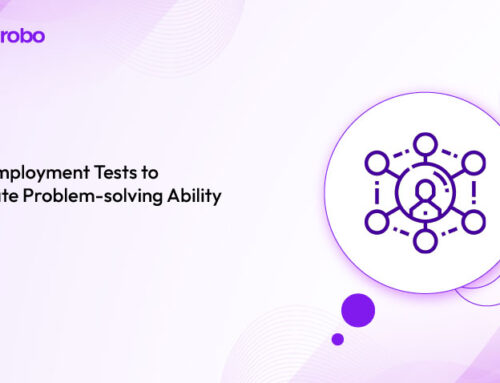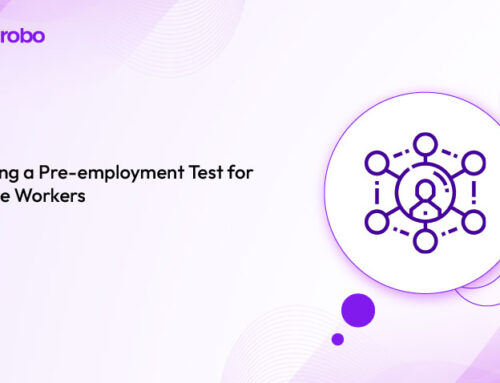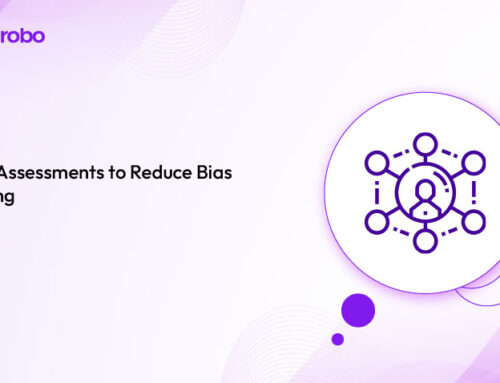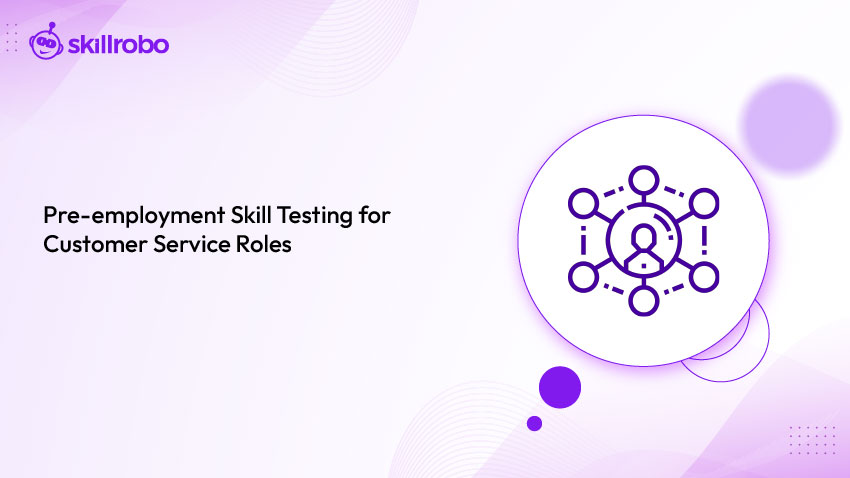
Key Takeaways
- Skill tests reveal candidates with exceptional communication and empathy, ensuring they connect with customers and handle inquiries effectively.
- Tailored assessments align with customer service demands, testing relevant skills like conflict resolution and upselling for role-specific evaluations.
- Objective skill tests reduce hiring bias, promoting fairness and supporting diverse hires for inclusive customer service teams.
- Data-driven analytics from skill tests streamline recruitment, delivering instant insights to identify top talent quickly and confidently.
The Need for Skill Testing in Customer Service
Ever dealt with a customer service rep who just gets it—someone who listens, solves your problem, and leaves you smiling? That’s the hire every company wants, but resumes and interviews often hide whether a candidate can deliver. Pre-employment skill tests are your secret weapon to find those stars who shine under pressure.
Customer service roles require a unique blend of communication, empathy, quick thinking, and resilience. A charming interview doesn’t guarantee someone can handle an irate caller or multitask during a busy shift. Skill tests cut through the polish, showing who can perform real-world tasks like resolving complaints or upselling with tact.
Platforms like SkillRobo let you customize tests to mirror actual job scenarios, ensuring relevance. They also level the playing field by focusing on measurable skills, reducing biases that sneak into traditional hiring. Without skill tests, you’re rolling the dice on hires who might fumble when customers need them most.
Core Skills to Test for Customer Service
Customer service success hinges on specific skills that drive satisfaction and loyalty. Testing these ensures hires can handle the demands of real-world interactions. To hire top customer service reps, you need tests that target the skills that matter most. Here’s what to assess:
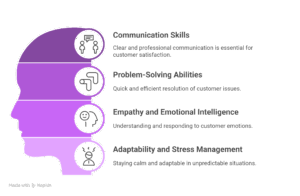
1. Communication Skills
Clear, professional communication—verbal and written—is non-negotiable. Tests might include drafting emails or responding to mock customer inquiries. Effective communicators boost customer satisfaction, but tests should reflect real tasks, like chat or phone support. For example, assessing tone in written responses ensures clarity and professionalism. These skills prevent misunderstandings and build trust with customers.
2. Problem-Solving Abilities
Reps must resolve issues fast, from billing errors to product questions. Scenario-based tests can simulate prioritizing tasks or troubleshooting. These tests confirm candidates can think on their feet, but keep scenarios role-specific to stay relevant. Testing quick decision-making under time constraints mirrors real call center challenges. This ensures hires can handle complex customer needs efficiently.
3. Empathy and Emotional Intelligence
Empathy turns frustrated customers into loyal ones. Behavioral tests, like role-plays or questionnaires, reveal how candidates handle emotional situations. Empathy is critical for rapport, but balance it with other skills to ensure well-rounded hires. Assessing active listening skills shows candidates can understand customer emotions. This fosters positive interactions and reduces escalation.
4. Adaptability and Stress Management
Customer service is unpredictable—reps need to stay calm and adapt. Psychometric tests assess traits like resilience or flexibility, ideal for high-pressure roles. These traits predict long-term success, but interpret results in context to match role needs. Testing stress responses in simulated busy shifts ensures hires thrive in chaos. This prepares reps for dynamic, fast-paced environments.
Crafting Effective Skill Tests
Building skill tests that pinpoint top customer service talent requires careful planning. Well-designed tests ensure hires excel in real-world scenarios. Crafting skill tests well can redefine customer service hiring. Precision ensures you identify reps who excel with customers.
Skill tests deliver results when designed with care. A strategic approach makes them relevant, fair, and valuable for HR teams. Here’s how to build tests that work:
1. Match Tests to Role Demands
Tests should mirror job tasks, like managing live chats or handling complaints. SkillRobo’s AI-powered SEYARC bot creates tailored questions, avoiding irrelevant tasks like testing a rep on technical coding. Role-specific tests ensure candidates are evaluated on relevant skills. This alignment improves hiring accuracy and candidate fit.
2. Use a Mix of Test Types
No single test covers it all. Combine communication tests for clarity, problem-solving tests for quick thinking, and behavioral or psychometric tests for empathy. This mix captures a candidate’s full potential. Diverse test types provide a holistic view of abilities. This ensures hires excel technically and emotionally.
3. Promote Fairness
Bias can cloud hiring. Standardized tests focus on skills, cutting subjectivity. Secure features, like webcam monitoring and tab-switching detection, ensure integrity. Learn more about using assessments to reduce bias in hiring. Fair tests support diverse hires and maintain trust. This strengthens inclusive recruitment practices.
4. Prioritize Candidate Experience
A clunky test frustrates applicants, skewing results. Clear instructions, intuitive interfaces, and accessibility—like screen reader support—help candidates shine. A positive experience reflects well on your brand. Accessibility ensures all candidates can perform at their best. This enhances your employer reputation.
5. Leverage Analytics
Data drives smart hiring. Choose platforms with instant, detailed performance reports to shortlist top reps quickly, integrating with HR systems for efficiency. Analytics highlight strengths and gaps for informed decisions. This speeds up recruitment and improves hire quality.
Impact of Skill Tests on Hiring Success
Effective skill tests transform customer service recruitment, delivering hires who elevate service quality and team performance. Here’s how they make a difference:
- Find Reps Who Excel: Skill tests identify candidates who handle complaints and build rapport, ensuring hires meet customer expectations. Analytics pinpoint top performers, reducing the risk of poor hires.
- Streamline Recruitment: Endless resume reviews slow you down, but skill tests simplify shortlisting. Instant reports and HR system integration make hiring faster, letting you focus on strategy.
- Improve Service Quality: Reps who pass skill tests resolve issues efficiently and keep customers happy. Testing communication and empathy ensures hires boost satisfaction and loyalty.
- Foster Fairness and Inclusion: Bias can exclude talent. Skill tests evaluate abilities objectively, supporting diverse hires. Secure testing environments reinforce equity, as noted in this blog, using assessments to reduce bias in hiring.
- Scale for Any Volume: Whether hiring one rep or a full team, skill tests adapt. Cloud-based platforms with AI-generated questions handle high-volume or niche roles effortlessly.
- Enhance Employer Reputation: Fair, skill-based testing shows you value talent, attracting top applicants. Custom branding, like adding your logo, polishes the candidate experience.
- Accelerate Onboarding: Skilled reps need less training, hitting the ground running. Tests targeting role-specific skills ensure hires deliver results sooner.
- Enable Confident Decisions: Intuition can mislead. Skill tests provide detailed analytics, highlighting strengths and gaps, so you hire with clarity.
How Skillrobo Enhances Customer Service Testing
Skillrobo simplifies skill testing for customer service, addressing common hiring challenges. Its 50+ skill library supports custom tests for roles like call center reps or support agents, ensuring job-relevant assessments.
The AI-powered SEYARC bot generates targeted questions fast, perfect for unique roles. Secure features, including webcam monitoring and tab-switching detection, ensure fair evaluations.
Instant analytics deliver performance insights, enabling data-driven decisions to find top talent. With accessibility options like screen reader support and seamless HR system integration, Skillrobo offers an efficient, equitable solution for hiring customer service pros who thrive.
Pitfalls to Avoid in Skill Testing
To ensure skill tests deliver, steer clear of these traps:
- Overcomplicating Tests: Tests that are too tough can deter great candidates. Keep them challenging but role-appropriate.
- Neglecting Soft Skills: Empathy and stress management are critical—test them thoroughly.
- Skipping Candidate Feedback: Brief performance insights build trust, even for those not selected.
- Relying Solely on Tests: Tests are powerful, but should complement interviews and references for a full picture.
Final Thoughts
Hiring standout customer service reps is like picking the perfect teammate for a high-stakes game—you need someone who keeps cool and wins over customers. Skill tests help you find candidates who communicate, solve problems fast, and show genuine care. With data-driven insights and fair methods, they make hiring smarter and more inclusive. Lean on resources like the linked guides, embrace skill tests, and build a team that turns every customer interaction into a win.
Ready to transform your hiring process with structured assessments? Sign up for Skillrobo and build a more inclusive, skill-first workforce.



